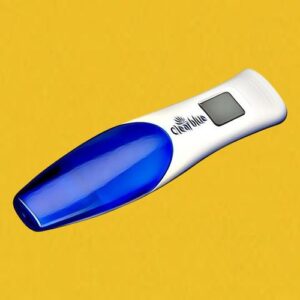The end of menstruation in a woman is often referred to as the ‘change of life’. It is at this time that the ovaries of a woman stop producing eggs every month. This means that she will no longer be able to have a child and her periods will stop.
The average age at which a woman reaches menopause in the UK is 52. However, it is not unknown for women who are in their 30’s or 40’s to reach menopause. Premature menopause is the term use when a woman who is under 45 years old experiences menopause.
A woman’s periods can often stop as soon as menopause is reached. More often than not though, a woman does not stop menstruating straight away. Instead, they will see a drop in the number of periods they have, with longer gaps between each. Eventually periods will stop altogether.
Why Does the Menopause Occur?
Menopause is a natural part of ageing for women. It occurs when a woman’s ovaries stop producing eggs and she stops having monthly menstrual periods. On average, it happens between the ages of 45 and 55, but it can happen earlier or later for some women.
The primary cause of menopause is a decrease in the hormones oestrogen and progesterone, produced by the ovaries. The decrease in these hormones causes the ovaries to stop releasing eggs and also leads to the thinning of the lining of the uterus. As a result, the body stops having monthly menstrual periods and can no longer become pregnant.
Other factors that may play a role in the onset of menopause include: genetics, lifestyle, medications, and illness. For example, women who smoke may experience menopause earlier than those who do not. Additionally, women who have had their ovaries removed may experience menopause suddenly and immediately.
Regardless of the cause, menopause can have a significant impact on a woman’s life. Common symptoms include hot flushes, night sweats, irregular periods, mood swings, and vaginal dryness. Additionally, women may experience changes in their sexual desire, energy level, and general health.
Fortunately, there are a variety of treatments and lifestyle modifications that can help women manage their menopausal symptoms. Hormone therapy, for example, can help to reduce hot flushes and night sweats. Additionally, lifestyle modifications such as exercise and stress management can help to improve overall health and wellness.
A change in the balance of the body’s sex hormones cause menopause. Oestrogen levels decrease in the lead up to menopause (perimenopause). This cause ovulation to stop – an egg is no longer produced every month by the ovaries.
The oestrogen decrease can cause symptoms such as:
- hot flushes
- night sweats
- mood swings
- dryness of the vagina
Read more about the symptoms of the menopause.
If you are experiencing the symptoms of menopause, and this is troubling you, we recommend that you make an appointment to see your GP straight away. There is no definitive test for the menopause. You could ask your doctor to carry out a blood test that will measure your levels of follicle-stimulating hormone (FSH).
Home testing kits for Menopause also exist. At Zoom Baby we offer two types of test that both detect increase levels of FSH. Normally, an increased level of FSH is a good indicator of menopause.
Two Types of Menopause Test Kits
Type 1: The Zoom Baby Female Fertility Test Kit consist of two midstream tests test for increased levels of Follicle Stimulating Hormone (FSH).
Type 2: Zoom Baby Menopause Test Kits detect raised levels of FSH – this menopause test kit consists of three cassette tests, into which a sample of urine is placed using a dropper.
All Zoom Baby Menopause Test Kits are supplied with easy to understand, “Plain English” instructions.
How to Prepare for a Menopause Test
Before taking a menopause test at home, there are a few things you should keep in mind. First, avoid drinking excessive amounts of liquid for at least two hours before the test, as this can dilute your urine and affect the results. It’s also best to take the test first thing in the morning when your urine is most concentrated. Finally, carefully read and follow all the instructions provided with your specific test kit to ensure accurate results.
When to See a Doctor
While home menopause tests can provide valuable insight, they are not a substitute for professional medical advice. If your test results indicate that you may be going through menopause, or if you are experiencing severe or distressing symptoms, it’s essential to make an appointment with your GP. They can perform additional tests, discuss your options, and help you manage your symptoms. Remember, every woman’s experience with menopause is unique, and there is no shame in seeking support during this transitional time.
Photo credit; “Menopause” by Anthony Cunningham for Zoom Baby
Zoom Baby is a leading supplier of Pregnancy Tests and Ovulation Test Kits





